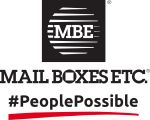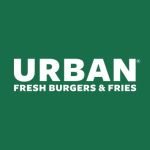Food franchises trends
Instagram is bursting with photos of mouth-watering recipes from around the world and the TV schedule is packed with food shows. However, recent years, especially post-Covid, have seen much turbulence and change in the market. So, is a food franchise a good business to buy into?
A food franchise covers a multitude of franchise opportunities, from food trucks, casual dining experiences and bubble tea cafes to franchising a fine dining restaurant business.
There is food for all occasions and from all cultures, from Halal food franchises to fast food franchises.
Franchise consultant Ben Black from Franchise My Business says the trend nowadays is towards casual fast food, drive-throughs and food delivery, building on the Covid legacy and taking into account the cost of living crisis.
Innovation is also big, with a lot of emphasis on health – particularly organic, plant-based or vegan food. “Customers today value more freedom, instagrammable appeal, speed and experiential food such as international fusion food. However, low-cost franchise businesses like Greggs are also doing well in the cost of living crisis,” says Black.
Food franchise examples
There are a number of very well-known food franchises in the UK, including McDonald’s, KFC and Costa Coffee. All have had to adapt to fast-changing customer needs and technological change.
Costa Coffee, for example, has recently been focusing on sustainability, convenience and customisation. It's introduced more plant-based options and drive-through services.
Competition, however, is fierce. There are always new franchises coming up and bringing innovation to the market. The best new food franchises in the UK tend to be looking to innovate in niche areas, such as desserts, coffee or speciality food.
This includes mobile coffee franchise Cafe2U, the ice cream franchise Udderlicious, Cake Box, Crepe Delicious, YouMeSushi, Krispy Kreme and Local Eats.
How much does it cost to open a food franchise?
Franchise costs can vary significantly based on a range of factors, including brand, location and business model.
The average cost of a food franchise in the UK ranges from around £40,000 to £300,000 or more. This covers the franchise fee, legal costs, set-up costs such as refurbishment and fixtures and fittings, plus ongoing costs, such as advertising. Property and business rates are an additional cost.
Buying a franchise, however, cuts the risk of starting a business because franchisors have already tried, tested and honed their model. They not only pass on that successful model to their franchisees, but also provide general business support in terms of training, funding, marketing and potentially more cost-effective supply of produce.
That way the business can not only get up and running, but continue to grow. Other franchisees are also on hand to provide advice if any problems arise. They are sure to have come up against many similar issues.
Black from Franchise My Business says it is a win-win for franchisee and franchisor. For the franchisor, having a new site run by a franchisee who is effectively a business partner means they have ‘skin in the game’ and are more likely to ensure good standards.
A very important factor when considering whether your chosen food franchise will be successful, and ultimately profitable, is location. Researching and understanding your local area is crucial.
What makes a successful food franchise?
Location
Black says, “Location is so important. It is hard to turn things around if you don’t get the location right. Sometimes franchises are just keen to get new sites open, but local knowledge is vital,” he says.
Locals will know where footfall is heaviest and how things like parking availability or one-way systems can impact customer numbers.
“Where it works well is when a franchisee uses the franchise brand and marketing in combination with local knowledge of the market,” says Black.
Other factors
In addition to location, he says what makes for a successful food franchise is:
- quick service
- a customer-centric team
- the ability to leverage technology
- having a USP
- a strong brand honed from experience of running multiple units in different locations
Food franchise case study – URBAN Fresh Burgers & Fries
So, where do you begin? For Meliha Candir, a franchisee at URBAN Fresh Burgers & Fries, it was a fairly simple process.
She had been working as general manager at the business for several years. URBAN started in Yorkshire in 2017 and had several units across the county before it launched as a franchise in 2024, having weathered the pandemic.
Therefore, Meliha, its first franchisee, knew how it worked, understood the brand, was convinced of its quality and was confident she could make it a success. Meliha and her partner also had past experience of running a takeaway business.
“I already had a really good relationship with URBAN. It was a no-brainer for us,” she says, adding that the six months getting the Sheffield restaurant up and running were ‘amazing’.
She received full training from URBAN, including to promote the opening. There was a queue around the block, despite lashing rain. Six months on, she is already looking to open another site.
Setting up the franchise
URBAN was started by husband and wife team Mehmet and Zerin Kent. Both have family backgrounds in the food industry, with both sets of parents having experience of running restaurants.
Mehmet and Zerin took some time out to go to university, but Zerin soon returned to the family business, armed with a law degree. Mehmet worked for a time as an architect.
Both say their non-food industry experience has come in handy in the business and added value – Mehmet leads on the lay-out of URBAN’s restaurants and Zerin works more on policy issues.
The two were keen to do things right when they set up their food franchise. They didn’t start the process until they were sure they had a sustainable business model built mainly on word of mouth.
They also consulted a franchise expert to ensure they could plan for different scenarios and protect their brand. The challenge of Covid had already seen them pivot towards deliveries.
Challenges
One of the major challenges for food franchises is not just adapting to change, but also ensuring that they have the right brand for the right market.
Determining your USP
The burger market which URBAN specialises in is very saturated, but its USP is the quality of its food and the fact that people can customise their burgers and drinks in any way they want, from toppings to sauces. “It’s quite a novel concept,” says Zerin.
URBAN’s menu covers everything from beef burgers and grilled chicken burgers to handmade veggie burgers. There are all manner of fresh toppings, cheeses, sauces and buns available.
The chips are locally sourced and fried in groundnut oil so are cholesterol and trans-fat-free. Customers can also customise their soft drinks and milkshakes.
Rising costs
The biggest challenge, however, has been keeping costs down. With rising inflation and business rates, plus wage increases, business owners need to balance the books while not putting customers off by raising prices too high.
The food franchise sector tends to rely on staff who are paid the minimum wage and that has been rising steadily over the last years.
Recruitment
Recruiting the right staff can also be hard work. Recruitment and retention have been extremely challenging since Brexit and Covid, particularly in certain locations.
Black says the younger workforce has different expectations of work and tends to move jobs more often. Another issue is getting site management right.
URBAN, which has recently won a local business award, is keen to retain staff for the longer term. It pays above the minimum wage but has had to look at other ways to save on costs, such as introducing self-order kiosks and using AI to understand customer choices better.
It has a strong head office team and is looking to create more opportunities for staff through growth in order to retain talent.
Costs
When it comes to franchisees, URBAN charges a £16K initial franchise fee. The biggest cost factor, however, is property. Deciding where to locate is crucial.
URBAN estimates sites can cost between £250-350K, depending on condition. However, the business can help to secure up to half the money from banks for franchisees.
The ideal premises for URBAN sites are sized between 2,000 and 3,000 square feet. Free car parking is vital so that customers can pick up their food easily and leave, although the majority eat in.
For Mehmet, Zerin and Meliha, the cost is worth it and their ambitions are high. URBAN plans to spread across the country, not just through its franchise model, but also through more centrally-run sites.
At the heart of the business, however, is a passion for food, rooted in family history. “It’s a love story about food,” says Zerin.
If you're interested in buying a food franchise, browse our wide range of franchise opportunities, including bakery franchises, cafe franchises, coffee franchises, fast food franchises, pizza franchises and restaurant franchises.





_100_100.jpg)


_100_100.jpg)
_(1)_100_71.png)

































































